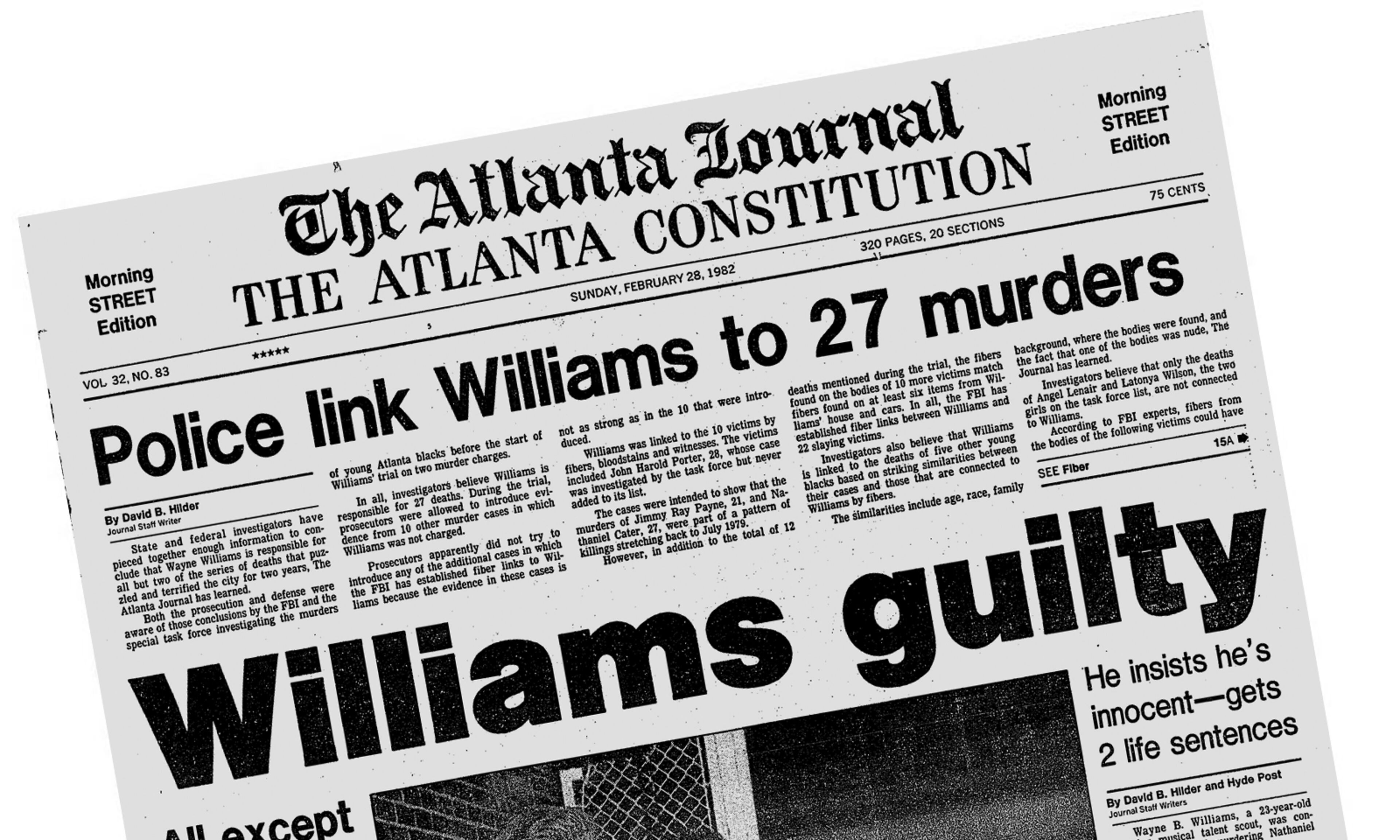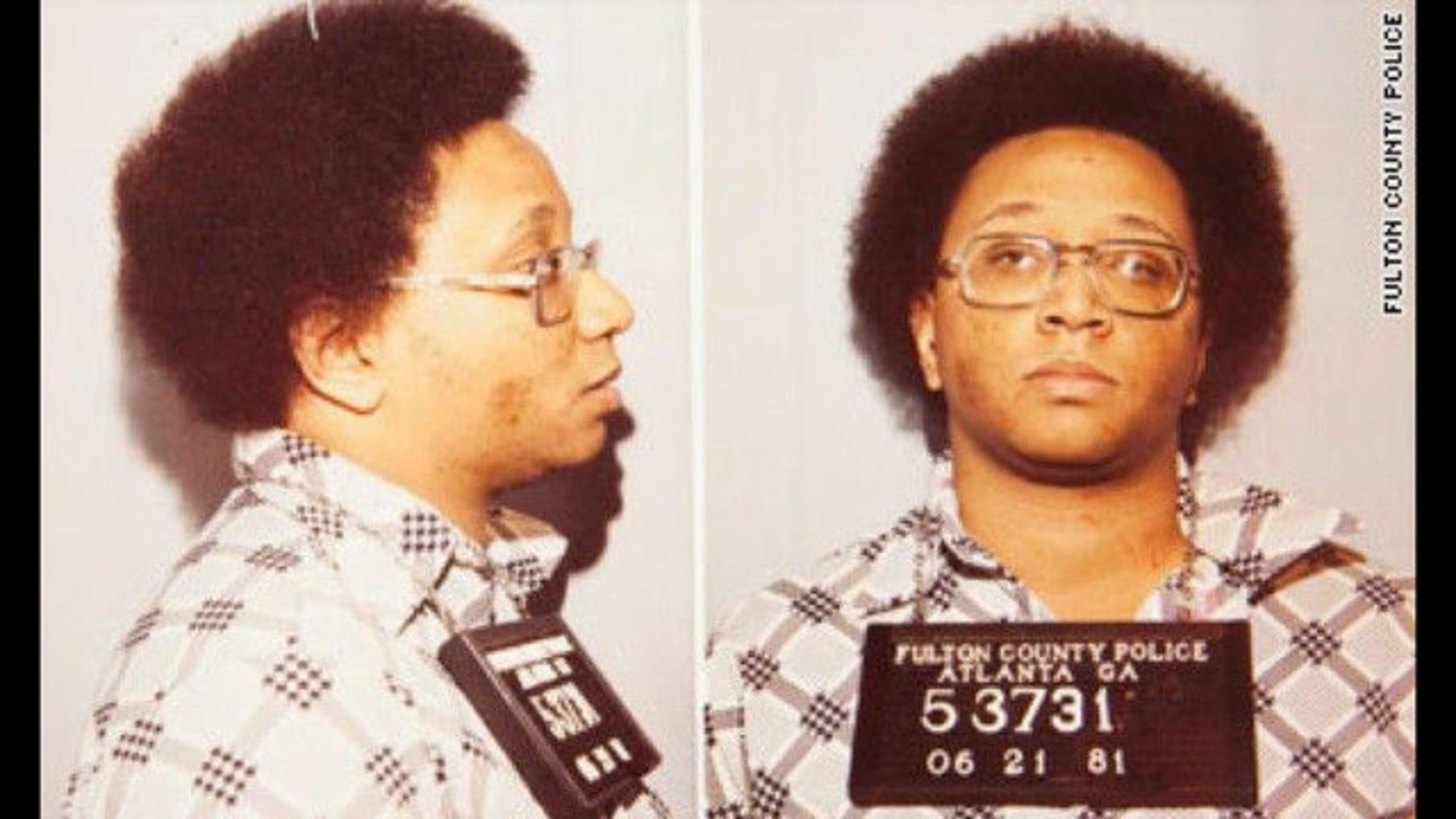5 things to know about the Atlanta Child Murders

Keisha Lance Bottoms was nine years old when the first boy disappeared in the summer of 1979. She was just two years younger than Angel Lenair in 1980, when the 12-year-old became the first girl who police say was killed as part of the Atlanta Child Murders.
Few Atlantans who grew up in that era from 1979 to 1981 have been able to shake the terror, fear and still unanswered questions that surrounded the deaths of more than two dozen black boys and girls across Atlanta.
Bottoms, now the mayor of Atlanta, announced this past week that state and local officials will take a fresh look at the Atlanta Child Murders by retesting some of the evidence gathered 40 years ago.

» RELATED: Authorities plan to retest Atlanta Child Murders evidence
“It may be there is nothing left to be tested,” Bottoms said during a news conference. “But I do think history will judge us by our actions and we will be able to say we tried.”
After the conviction of Wayne Williams in 1982, authorities closed all of the cases, saying they were certain Williams was responsible for the entire string of crimes. But Williams never faced charges in any of the children’s deaths and instead was convicted of murdering two men, Nathaniel Cater, 27, and Jimmy Ray Payne, 21.
» RELATED: Read the AJC’s coverage of the Atlanta Child Murders

Bottoms noted that evidence does link Williams to many of the murdered children but wants to make sure there isn’t something new to be learned from retesting evidence. She said that by applying modern technology to the testing of evidence will assure victims’ families that city and police officials “have done all that (they) can do to make sure their memories are not forgotten and, in the truest sense of the word, to let the world know that black lives do matter.”
Here are five things to know about the Atlanta Child Murders:
29:

Between July of 1979 and May of 1981, some 29 boys, girls and young men ended up dead in Atlanta in what came to be called the Atlanta Child Murders.
The first known victim, 14-year-old Edward Smith, was shot to death.
The last, Nathaniel Cater, was strangled and dumped in the Chattahoochee River.
Others were stabbed, bludgeoned or suffocated.
Only two of the victims were girls, Angel Lenair and 7-year-old Latonya Wilson.
While Wilson was the youngest victim, the oldest was 28-year-old John Porter.
The body or whereabouts of one of the known victims, Darron Glass, has never been found.
Five cases that originated in DeKalb County were also recently reopened.
Hysteria:

Imagine sitting in front of your television and at the top of every hour, an announcement similar to this would pop up: "It's 11 p.m., do you know where your children are?"
That is what local Atlanta television stations were doing between 1979 and 1981 — part of anything to help. In 1979, Atlanta was being led by the charismatic Maynard Jackson, a son of the city and the South's first black mayor.
But for all he did for the city, the Atlanta Child Murders haunted him. Greg Pridgeon, a former Jackson aide, told The Atlanta Journal-Constitution in 2004 that the period “created turmoil inside of him.”
“He put extra pressure on the police and on himself to make this bad situation go away. It was a difficult time in his administration and his life — young black kids getting snatched up and killed,” Pridgeon said. “Him seeing young Atlantans, whom he loved dearly, killed, hurt him."
It was before the ’96 Olympics and before hip-hop helped define what Atlanta is now. Teams of volunteers combed the woods for bodies. Other patrolled their neighborhoods with baseball bats.
As grieving mothers begged for the cases to get attention, performers like The Jacksons, Frank Sinatra and Sammy Davis Jr. — who was famously photographed with a young future mayor Kasim Reed — made their way to Atlanta to raise money for the families of the victims.
President Ronald Reagan earmarked more than $2 million to help with the case. Jackson himself was photographed behind a desk of $100,000 in cash that he offered as an reward.
Muhammad Ali said it wasn’t enough and pledged $400,000 more. The reward was never collected.
Who was Wayne Williams?

The only person ever charged with any of the murders was Wayne Bertram Williams, then a 23-year-old photographer and wannabe music producer.
Williams' convictions hinged on dog hairs and fibers that prosecutors argued linked his home and car to Nathaniel Cater's and Jimmy Ray Payne's bodies.
Though Williams was tried for just those two killings, the Atlanta Police Department attributed at least 22 of the other 29 known homicides to Williams and closed those cases.
Williams, now 60, is serving a life sentence at Telfair State Prison in southeast Georgia. He maintains his innocence and many people still doubt that he was the serial killer. “Nobody ever testified or even claimed that they saw me strike another person, choke another person, stab, beat or kill or hurt anybody,” Williams said in a 2010 CNN interview. “Because I didn’t."
Who is telling the story?

Today, close to 40 years after the first killing, the subject of the Atlanta Child Murders still fascinates and intrigues people in and outside of Atlanta. On Saturday, March 23, Atlanta producer Will Packer's new documentary "The Atlanta Child Murders" will begin airing on Investigation Discovery.
“I want to acknowledge and thank my friend Will Packer who is doing a documentary on the missing and murdered children,” Bottoms said at her press conference.
Packer said while the documentary on the ID cable channel doesn’t try to solve the murder mystery, it does bring forth several theories for the viewers to consider.
He said the crime spree resonates today because “black and brown children in general still go missing and don’t get national coverage,” he said. “It’s often the least among us who need the most protection.”
Netflix’s second season of its original series “Mindhunter” is expected to explore the case, and last year the murders were the subject of the acclaimed podcast “Atlanta Monster” by Atlanta-based HowStuffWorks and Tenderfoot Productions.
Who will be looking at the evidence?
Atlanta Police Chief Erika Shields, along with Fulton County District Attorney Paul Howard and the Georgia Bureau of Investigation will use modern technology to test old evidence.
Mayor Bottoms and Atlanta Police Chief Shields said the fresh look at the evidence will be multijurisdictional.
Along with APD, the Fulton County District Attorney’s Office and the Georgia Bureau of Investigation will be involved in the investigation. Shields said using modern technology, they will test stored evidence like DNA and cloth and carpet fibers.
Fulton County District Attorney Paul Howard said this will be the first project of his office’s soon-to-be formed Conviction Integrity Unit.
On Saturday, the APD announced the department had set up a dedicated telephone line to receive information that might be helpful to investigators.
Anyone who would like to offer information in any of the cases may call 404-546-2603. If an officer or investigator is not able to answer the phone, callers are encouraged to leave a message with a call-back number for follow-up.

